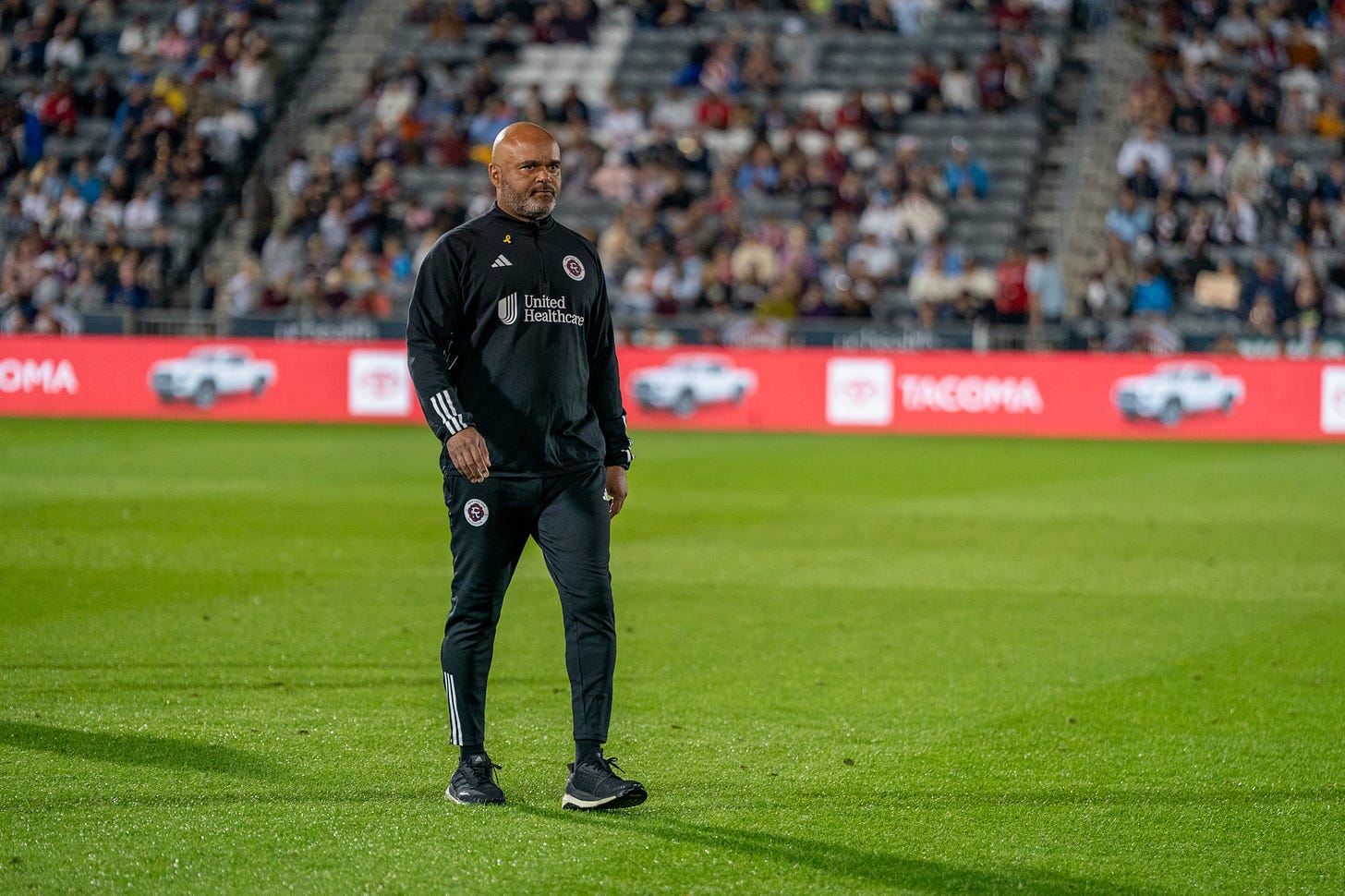New England Revolution Failure to Defend Counterattacks Proving Costly
"I think too many times tonight, we lose the ball too easily, and when you do that and you’re not prepared to lose the ball, it surprises you and you get caught out."
Once again the New England Revolution fell victim to a counterattack that saw them drop points in a match.
Against the Columbus Crew on Wednesday, a 20th-minute goal gave the Crew an early lead. After giving up possession in the final third, Revolution fans saw the Crew storm up the field with Diego Rossi giving the visitors an early lead.
While Tomas Chancalay tied things up and a late corner-kick goal ended up giving Columbus the win, the early goal changed the trajectory of the match.
This issue seems to have been exacerbated since interim head coach Clint Peay took over. His decision to play Matt Polster as an inverted left back along with New England’s reliance on outside backs getting forward, have caused teams to quickly move up the field after gaining possession and put the Revs on the back foot.
But Peay doesn’t believe the system is causing the issues. The interim coach believes the problem has sprouted due to lack of care with the ball and stopping the transition in its initial tracks.
“I don’t necessarily know that it’s the system,” Peay said. “I think regardless of how you play, counterattacks are part of the game. I think you have to deal with it, regardless of how you play, and I think it first starts with how you take care of the ball. I think too many times tonight, we lose the ball too easily, and when you do that and you’re not prepared to lose the ball, it surprises you and you get caught out. Other times, I think we could’ve done a better job of stopping the player high up the field, and obviously, there’s moments we didn’t do that. They got more direct as the game went on, because of the pressure. They couldn’t play through us. I thought we forced them to change it and that almost played to their advantage at some points, because they’ve got some quick guys up top, and the game got stretched.”
Besides Polster, DeJuan Jones has been impacted by this tactical change from Peay. With Polster operating in Jones’ normal left back position, the 26-year-old is now on the opposite side of the field.
Similarly to Peay, Jones believes that New England needs to be better on the ball.
“I think we have got to be smarter on the ball,” he said. “I think we're losing the ball in some bad areas, and just when guys aren't expecting us to lose the ball. Obviously, you have to be careful and not go too far forward too fast, but also we've got to be smarter with the ball and realize times where it's maybe dangerous to go for the ‘Superman’ ball.”
This isn’t a one-game occurrence. Whether it be against Minnesota or Chicago, the Revolution have shown a propensity to struggle defending in this area of the game. So what does an opponent do when going up against a team with such issues?
“I don’t know it’s a good question,” Crew midfielder Aidan Morris exclaimed (or maybe joked) to The Blazing Musket. “We got talent up there man. I think positionally, I think it was finding the right guys in position and when we win the ball or retain it. It’s also about finding the time when to go and when not to go and the rhythm of the game. I think we did pretty well with that tonight.”
While Peay doesn’t believe this is a systematic issue, if points continue to get dropped, his tactical changes could be looked upon unfavorably. While it’s hard to blame him considering the difficult hand he has been dealt, these changes could play a role in New England’s season coming to an end.




While I sympathize with the hand that Peay was dealt, he is being too stubborn in sticking with a strategy that's not working. His subs against Columbus were also very poor. Bou should have been paired with Vrioni when he came on and Sweat should have never seen the pitch. Omar should have come on instead, with Farrell moved outside.